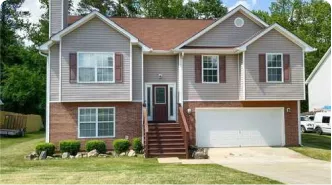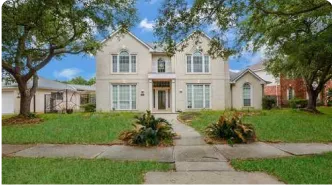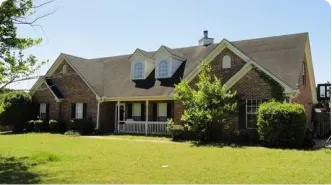Owning an Airbnb comes with a lot of rewards. However, there are serious risks that Airbnb hosts need to be aware of and work to mitigate. Here are five common hosting risks to consider and what you can do to manage them.
The best way to get landlord insurance is through Obie. Obie shops your insurance coverage to many insurance companies, getting you the best possible rate. It’s available in all 50 states. Get a free quote now.
1. Damage to Your Rental Property
One of the biggest risks of Airbnb hosts is worrying about whether their guests will damage their property. While you can do your best to vet out potential guests and maintain house rules to reduce the chances of damage, you can’t control everything. You may have a guest disregard the rules and throw a house party, which gets out of control and leads to them breaking the kitchen cabinets. Because Airbnb hosts aren’t allowed to charge a security deposit, the owner is left trying to collect from the guest, from the Airbnb protection policy, or they can file an insurance claim.
Hosts have found getting money directly from guests is very difficult. Depending on the claim size, getting the Airbnb protection plan to pay up can also be challenging. If the damage was accidental, the insurance carrier would likely cover the loss less the deductible.
2. Guests Getting Injured on the Property
Accidents happen, and people get hurt. Unfortunately, when guests get injured on your property, they are likely to file a claim or a lawsuit against you to pay for medical bills and collect for other things like lost wages. The injury might be innocent, such as a guest slipping next to the pool in a puddle and hitting their head on the concrete. Because it happened on your property, you are likely liable for the accident and its associated costs.
To prevent accidents, make sure that the property is well maintained. If a railing is loose, fix it so someone doesn’t fall leaning against it. Post signs near pools that the floor may get slippery when wet. Do what you can to inform guests about risks to mitigate them. Walk through the property and note any attractive nuisances, such as:
- A pool or hot tub
- Trampoline
- Barbeque
- Fireplaces
- Sports equipment
If an accident happens, contact your landlord insurance policy carrier. A big part of landlord insurance is liability protection. The liability protection pays third-party claims where someone says that you are responsible for their injuries or property damage. Many policies come with $1 million in coverage.
3. Theft of Belongings
Unlike other rentals where you have a tenant for a one-year lease, and the tenant brings their own furniture, an Airbnb is fully furnished and has home goods available to use. This means you are at risk of someone stealing your stuff. It may be a guest that steals it or someone who breaks into the home. Either way, you have to deal with the problem.
Guests must adhere to a conduct policy. If guests steal from you, you can report them and open a claim. However, there is no guarantee that this will resolve the problem.
This is why having a landlord insurance policy that has enough personal property coverage in it to replace lost items. Remember that there is a deductible with your insurance policy, so you need to meet that.
4. Unable to Rent the Property
Airbnb hosts make their money by renting out their property. When they can’t do this, they lose money and may default on the mortgage because there is no income coming in. If the property has a claim, such as a fire that damages the structure, the insurance company for your landlord insurance will open a claim. The claim will have two parts: the structure repair and loss of rents.
Loss of rents is a coverage in a landlord insurance policy that pays to replace the lost income from the property. If you rent the Airbnb for $245 a night, your insurance policy will pay this as part of the claim. This way, you aren’t losing money because of the claim. Insurance companies may look at occupancy rates and average rates when calculating the loss of rents amount. Be sure to discuss how loss of rents will work when you buy landlord insurance to ensure that you have the coverage for your short-term rental and that it will adequately meet your needs.
5. Squatters in Airbnb
Whenever you give access to your property, you risk guests deciding to stay on the property and claim it as their residence. This happened to Airbnb hosts in California. Their guests rented the property for 30 days and then stayed. Because California’s residency laws state you establish residence after 30 days, the squatters claimed it was their home. When this happens, you must follow the court's rules for eviction. This can be a lengthy process and one that costs you money and time during which you can’t rent the property out.
Airbnb hosts can protect themselves from squatters by limiting stays. By making sure that guests don’t establish residency, you make it easier to get them out of the home.
Takeaway
Being an Airbnb owner means being a savvy business owner. You must mitigate risks to make sure you can fully profit from Airbnb ownership. Having the right insurance policy is critical in protecting against many risks. Check out the specialty brokerage, Obie, to get a policy that meets your short-term rental needs at a price you can afford.
.svg)






.webp)







%201.webp)
%203.webp)



%201.webp)
.webp)




